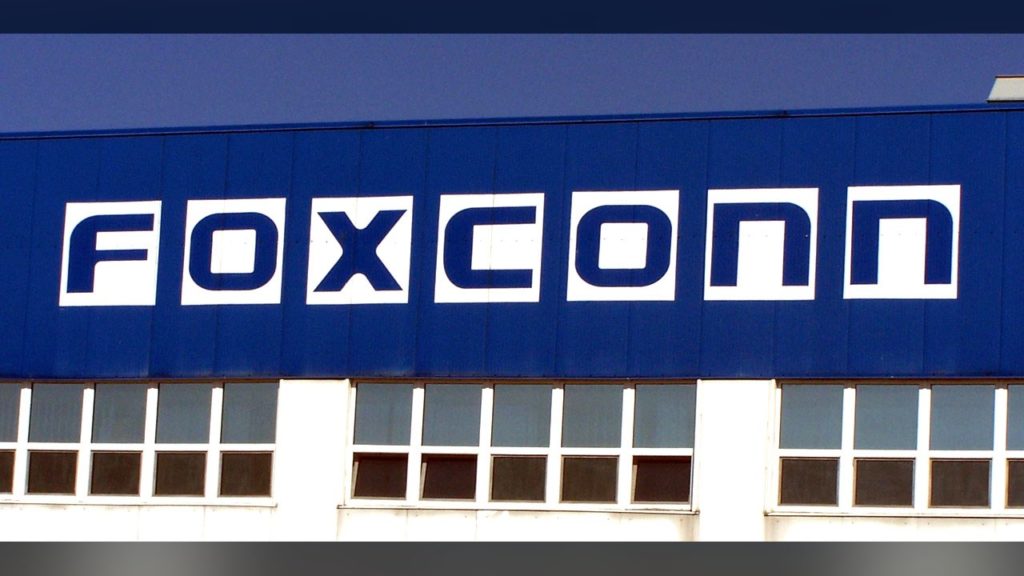Electronics giant Foxconn reversed course and announced Wednesday that the massive Wisconsin operation that was supposed to bring a bounty of blue-collar manufacturing jobs back to the Midwest — and was offered billions of dollars in incentives from the state — will instead be devoted mostly to research and development.
The much-ballyhooed facility was heralded by President Donald Trump and former Wisconsin Gov. Scott Walker as a once-in-a-generation opportunity . Foxconn, a major supplier to Apple, is the world’s largest contract maker of electronics and China’s largest private employer.
In a statement Wednesday, Foxconn said it remains committed to the project, the creation of 13,000 jobs and “to our long-term investment in Wisconsin.” But because the global market environment that existed when the project was first announced in 2017 has shifted, “this has necessitated the adjustment of plans for all projects, including Wisconsin.”
Foxconn previously said it could invest as much as $10 billion in the project. It did not recommit to that number in its statement Wednesday, but Wisconsin leaders said Foxconn leaders had pledged to spend that much.
Louis Woo, special assistant to Foxconn CEO Terry Gou, told Reuters that it’s scaling back and possibly shelving plans to build liquid crystal display panel screens in Wisconsin.
“In terms of TV, we have no place in the U.S.,” Woo told Reuters. “We can’t compete.”
Woo said a factory would not be built in Wisconsin: “You can’t use a factory to view our Wisconsin investment.”
Instead, Woo said Foxconn wants to create a “technology hub” that would largely consist of research facilities along with packaging and assembly operations. Woo said about three-quarters of the jobs created will be in research and development and design, rather than blue-collar manufacturing jobs.
Marc Levine, senior fellow and founding director of the University of Wisconsin-Milwaukee’s Center of Economic Development, called it “one enormous bait and switch.”
And he scoffed at the idea that Foxconn, known for manufacturing, could transform into a research-and-development giant.
“That’s simply not what Foxconn is,” Levine said in an email. “So the notion that there will be 13,000 research jobs at Foxconn is highly, highly unlikely.”
Assembly Minority Leader Gordon Hintz, a Democrat, said it was another example of Foxconn overpromising and under-delivering.
“This news is devastating for the taxpayers of Wisconsin. We were promised manufacturing jobs. We were promised state of the art LCD production. We were promised a game-changing economic opportunity for our state. And now, it appears Foxconn is living up to their failed track record in the U.S. — leaving another state and community high and dry,” Hintz said.
Walker, who brokered the deal, emphasized in a tweet Wednesday that Foxconn only earns tax credits for actual investment and job creation.
“No jobs/investment? No credits. Period,” Walker tweeted.
Foxconn’s statement said it was broadening its investment to focus on research and development in advanced industrial internet technologies and producing high-tech applications and solutions for industries such as education, medical and health care, entertainment and sports, security, and smart cities.
The Taiwan-based company initially billed the massive 20 million-square-foot (1.86 million-square-meter) Wisconsin campus as its first North American manufacturing site for the next generation of liquid crystal display panels to be used in a wide variety of products, including large-screen TVs, self-driving cars, notebooks and other monitors.
Wisconsin state and local governments promised roughly $4 billion to Foxconn, the largest incentive in state history and the biggest pledged by a state to a foreign corporation in U.S. history. Foxconn was required to invest $10 billion and create 13,000 jobs to get the full incentives.
It had already fallen short last year, hiring 178 full-time employees rather than the 260 targeted, and failed to earn a state tax credit worth up to $9.5 million.
Wisconsin Republican legislative leaders who pushed the Foxconn project blamed new Democratic Gov. Tony Evers for Foxconn’s changing plans. They said he had created an air of economic uncertainty by supporting elimination of a manufacturing tax credit program.
Evers was critical of Foxconn in the campaign against Walker, but did not pledge to undo the deal. His top aide Joel Brennan said in a statement that the administration was “surprised” by the news and talked with Foxconn leaders about the development. He did not address the Republican accusations that Evers was to blame.
Democratic critics, including Evers, said the incentives promised to Foxconn were too rich and questioned whether the company would ever fulfill its job creation and investment promises. They also said the massive plant that was relying on water from nearby Lake Michigan posed serious environmental risks.
The president of Wisconsin’s Technology Council, Tom Still, said he’s not surprised that Foxconn wants to change course since televisions are becoming less expensive and iPhone sales are declining.
Still, whose group nurtures tech in Wisconsin and advises state leaders on policy, noted the company has already invested as much as $200 million in Wisconsin so he’s not worried that Foxconn might pull out. He said Foxconn can succeed if the plant becomes more research-oriented because their areas of interest match up with Wisconsin’s strengths — such as robotics, medical imaging, and industrial imaging.
The White House didn’t immediately comment. Last summer, Trump highlighted his economic policies at a groundbreaking event for the massive Foxconn complex, which state officials initially said could house 11 football fields.
“America is open for business more than it has ever been open for business. Made in the USA: It’s all happening and it’s happening very, very quickly,” Trump said in June after visiting the Foxconn site. “Today we’re seeing the results of the pro-America agenda. America First, Make America Great Again. Greatest phrase ever used in politics, I suspect.”
(AP)












One Response
The current policy of the USA towards China is “trade war”. Furthermore, many Democrats support this aspect of Trump’s policies, and in fact, in the past most Democrats were protectionists. If relations deteriorate further, all Chinese investments in America will be subject to seizure (as weill Americans investments in China). The prudent thing for a Chinese company to do is to not invest in the US.